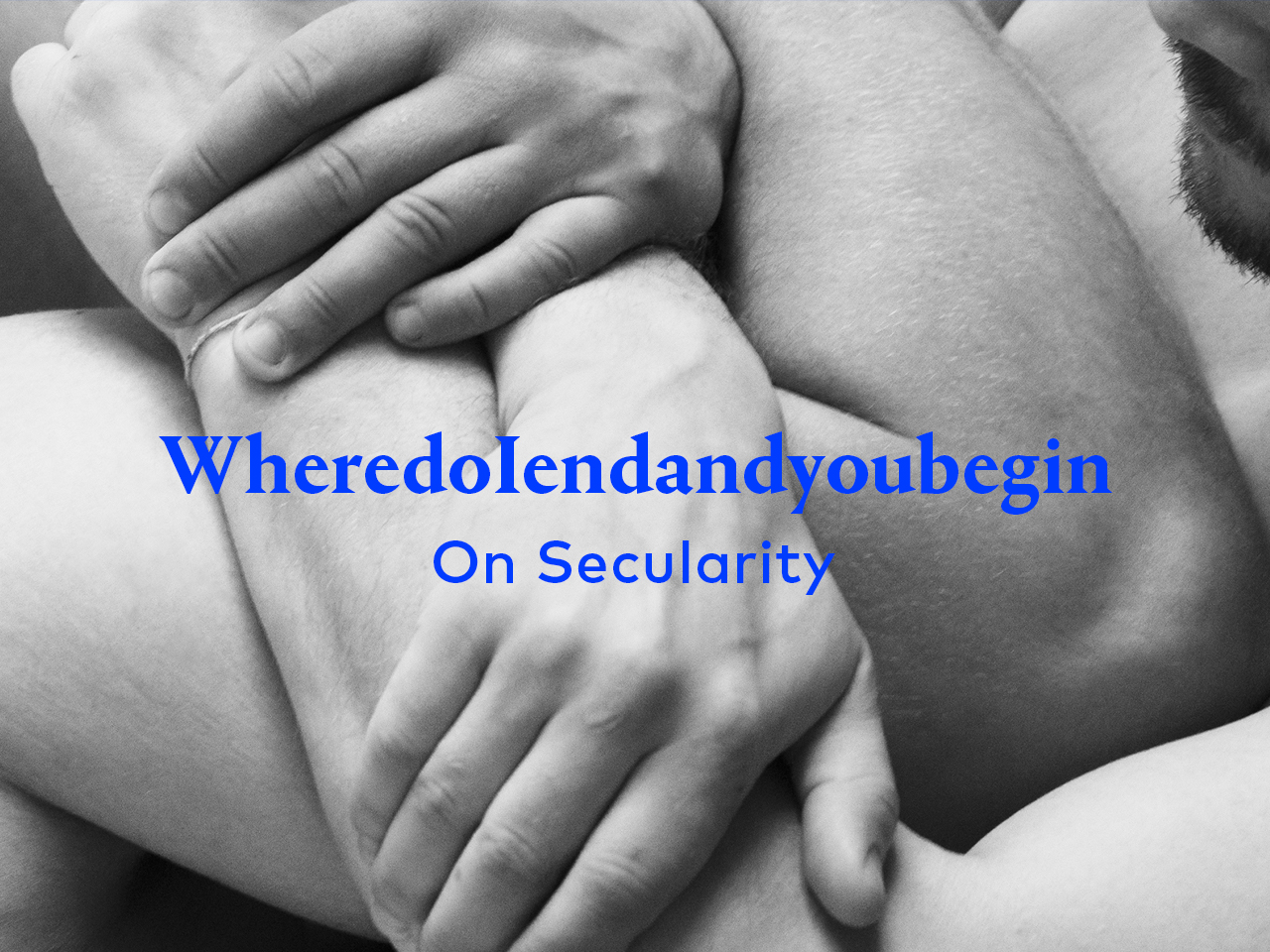Thematic
WheredoIendandyoubegin – On Secularity
September 9–November 19 2017
Göteborg International Biennial for Contemporary Art 2017, titled WheredoIendandyoubegin – On Secularity, will seek to stimulate public discourse on a subject of contemporary social and political significance: that of the secular. What role should secularity have in society today?
Based on the principle of a separation of religious belief and non-belief from the state, contemporary Western liberal secularity strives to create the conditions that produce and protect four civic cornerstones: political and social equality, minority rights, religious freedom, and the legal separation of private and public domains. Secularity, not to be confused with atheism, has played an essential role in society, creating the conditions for regulating complex and often divisive areas of transaction, including sexual freedoms, freedom of religion, gender equality and freedom of expression. Its strength lies in allowing different modes of living to co-exist due to protections and rights provided under the law. Secularity has taken many forms around the world, key examples of which include the ‘Averroism’ of Islamic Andalusia in the Middle Ages, Mustafa Kemal Atatürk’s modernising ‘Kemalist’ secularism in Turkey in the early 20th century, the constitutional secularism of Laïcité in France, as well as the constitution of the United States of America.
GIBCA 2017 looks to address such complex questions on the status of secularity in the situation of its crisis. In the midst of the geo-political upheaval that has continued to take place since the beginning of the 21st century, together with an increasing consciousness of fear and precarity, liberal secularity finds itself under acute pressure. In this state of affairs, where unrestrained identitarianisms have emerged, secularism itself can be used to legitimise oppression and violence against minorities. Numerous profound questions emerge about the future. What happens to secularity during moments of crisis? How can we sustain freedoms – social, sexual, cultural or religious – in a situation of stark cultural differences? What do we mean by ‘belief’ today? Is secularity itself defined, as some scholars believe, by relations to perceived others? Is it the state that is best positioned for defining secularity? If not, who should? The biennial will seek to engage with such fundamental questions about Europe, the formalisation of its values, and the fine line between protection and violence. Art, as a field that has a historic foot in the spaces of religion and its contemporary foot in that of the secular, has an important role to play in this debate on the relations between governance, belief and freedom which form the foundations of this biennial.
With the participation of approximately thirty artists, WheredoIendandyoubegin will be a multi-faceted event, comprised primarily of an exhibition of art and historic artefacts, with numerous site-specific art projects developed in collaboration with different constituents and organisations in Gothenburg. Exhibition displays and programmes will be presented at the Röda Sten Konsthall, Göteborg Konsthall and many other sites around Gothenburg, including the Gothenburg City Library who will host a selection of film and video works from the Nordic Region, primarily focused on the 1990s. GIBCA will also collaborate with Platform for Artistic Research in Sweden (PARSE) based at Valand Academy on a special issue of PARSE Journal considering the subject of Secularity, as well as on a section of the PARSE Biennial conference taking place in November.
Participating artists: Alexander Tovborg, Archivo F.X. in collaboration with Bassam El Baroni & Pedro G. Romero with the participation of Doris Hakim, Yassine Chouati & Equipe Media, Basim Magdy, Dimitri Venkov, Etel Adnan, Fahd Burki, Fatma Bucak, Francesc Ruiz, Haegue Yang, Haseeb Ahmed & Daniel Baird, Hilma af Klint, Jens Haaning, Joakim Forsgren, Jonas Staal, The Kingdoms of Elgaland-Vargaland, Lawrence Abu Hamdan, Maddie Leach, Michèle Matyn, Måns Wrange/OMBUD, Olivia Plender, Public Movement, Riikka Kuoppala, Rose Borthwick, Santiago Mostyn, Saskia Holmkvist, Ellen Nyman & Corina Oprea, Shilpa Gupta, Sille Storihle, Vector.
We’re Saying What You’re Thinking video exhibition: Catti Brandelius, Cecilia Lundqvist, Claes Söderquist, Dorinel Marc, Elin Magnusson, Ellen Nyman, Eva Linder, Guds söner / Sons of God (Leif Elggren/Kent Tankred), Jannicke Låker, Jesper Nordahl, Johan Tirén, Lene Adler Petersen & Bjørn Nørgaard, Lene Adler Petersen & Bjørn Nørgaard & Henning Christiansen, Loulou Cherinet, Marko Raat.
Reference group
- Mia Christersdotter Norman, Director GIBCA/Röda Sten Konsthall
- Stina Edblom, Artistic Director, GIBCA
- Emelie Storm, Project Manager, GIBCA Extended
Nav Haq, Curator GIBCA 2017 - Ola Sigurdsson, Professor of Theology, University of Gothenburg
- Lasse Fryk, Associate Professor, Department of Social Work, University of Gothenburg
- Mikael Ringlander, Priest and Project Manager, Cultural Department, Church of Sweden
- Zana Muhammed, Director, Gothenburg Inter-religious Center
- Ardeshir Bibakabadi, Director, Homan Gothenburg
- Liv Stoltz, Curator, Göteborgs Konsthall
- Alida Ivanov, Curator, Göteborgs Konsthall
- Mija Renström, Curator for Educational Program, Göteborgs Konsthall
- Andrea Phillips, Professor, Valand Academy, University of Gothenburg
Graphic identity: Leon&Chris. Photo © Santiago Mostyn

